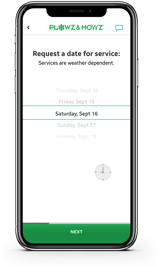WRITTEN BY Cindy
1. Learn what the average charges are in your area. Home Advisor and Home Guide are good sites for that. Estimates current range from $100 to $600 per job, depending on the size of the job. Most homeowners expect a charge by the job.2. To set a rate, determine your business costs. Simply saying, “I’ll charge the average rate” may backfire. List everything that goes into running your business (not doing this is a major mistake that causes possibly viable businesses to quickly fail). The rate you charge is not pure profit. The most reliable way to do this is to figure out your business costs by the week (or month or year), then divide down until you get a rate that is the minimum amount you need to charge per hour (no, you’re not going to charge by the hour, but you need a starting point). While a few of these expenses will need to be estimated, you still need to factor in:
o Vehicle (cost, maintenance, repairs, fuel, insurance, licensing)
o Local license and permit fees (check both towns and counties)
o Bookkeeping costs (your time, software and apps, pens, pencils, etc.)
o Dumping fees (contact local dumps and recyclers)
o Recycling (people will want you to do so), so figure in the hours for that (sorting, driving to the recycling plant, etc.)
o Wages for helpers; chances are you will need at least one person unless you are super strong, never get sick, and have a working knowledge of physics so you can lift a refrigerator onto a truck by yourself
o Fees for accepting credit cards (plan on it for every job); fees range from about 2.5% to 5%, plus sometimes a 10¢ per card fee (so, a $100 charge processed by credit card could cost you up to $5.10)
o Your wages, liability insurance, health insurance, business income taxes
3. Figure out how long it takes you to move a pile of junk. Don’t forget labor hours after you’ve left the customer’s home. When you make the estimate, plan on being slower than you think you’ll be. Interruptions occur; even weather can slow you down.
4. Learn the local laws pertaining to waste and disposal. You need to know dumping fees you’re going to incur, and you may want to charge an extra fee for some items like mattresses.
5. Get an app for recording mileage, times, expenses while you’re on the go. If you’re not using a smartphone, you need a logbook (it’s the least expensive, but you’ll pay for that decision in labor hours when it comes to tax time). Seriously consider paying for the best apps like Quicken or QuickBooks because when it comes to tax time, if you’ve used these apps all year long, coordinating your business expenses for your accountant will be a breeze. Many also incorporate do-it-yourself payroll, but if you’re not comfortable with that avoid the major payroll companies and look for a local accountant who also does payroll. Chances are it’s going to be much cheaper.
6. Write a customer contract. Incorporate any issues that customers may need to know about, such as no paint cans with wet paint and of course liability issues. It’s always a good idea to pay an attorney to look your contract over and make suggestions, as a lawsuit can be extremely expensive and being proactive is much cheaper. Consider adding a note about your right to resell collected junk (see below).
7. Do on-site invoices. Be sure the app generates an on-the-go invoice for your customers that can be sent via email as a PDF or text message. It a portable printer. (Those few who must have paper will need to wait for snail mail.)
8. Be sure you can accept credit cards. Companies like Square with on-the-go options to accept credit cards through your smartphone are extremely helpful. Despite the fees associated with accepting credit cards, it’s a lot less expensive than risking a large bad check.
9. Sell stuff you’ve collected. You can raise your profits if you decide you’re going to resell some of the items you’ve collected, such as metal or furniture. However, there can be expenses associated with those items, such as storage and labor. Discuss with your attorney if your ability to resell items collected should be noted in the contract.
10. Market your business. Advertising your business is difficult right now because like nobody reads newspapers anymore. It’s all digital. Strongly consider the benefits of setting yourself up on a home-service app like Plowz and Mowz. These companies are at the top of Google searches for home services, and that’s not something you can easily do by just setting up your own website (although, of course, you should do that). Plus, customers feel safer with a known company standing behind the contractor. Also consider Facebook, Twitter, and the like, but be sure you can specify a local radius. There’s no point in people in California reading your junk-removal ad if you’re in New York.
-->





